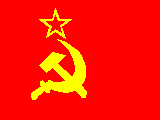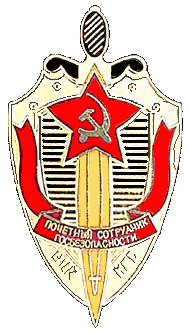





 THE FOREIGN INTELLIGENCE ROLE
THE FOREIGN INTELLIGENCE ROLEThe KGB played an important role in furthering Soviet foreign policy objectives abroad. In addition to straightforward intelligence collection and counterintelligence, the KGB participated in the Kremlin's program of active measures. KGB officials also contributed to foreign policy decision making.
The First Chief Directorate of the KGB was responsible for KGB operations abroad. The longtime head of the First Chief Directorate, Vladimir Kriuchkov, who had served under Andropov and his successors, was named head of the KGB in 1988.
The Second Chief Directorate also played a role in foreign intelligence in 1989. It recruited agents for intelligence purposes from among foreigners stationed in the Soviet Union, and it engaged in counterintelligence by uncovering attempts of foreign intelligence services to recruit Soviet citizens.
The First Chief Directorate was responsible for all international Soviet clandestine activities, apart from military intelligence collection by the GRU and political initiatives of the Communist Party itself.
Directorate S recruited, trained, and managed KGB officers assigned to foreign countries under false identities. Most of the staff of the Directorate have either served as illegals, or have served abroad under diplomatic cover.
Directorate T was created from the former Department 10 in 1963 to intensify the acquisition of Western strategic, military and industrial technology. By 1972 Directorate T had a headquarters staff of several hundred officers subdivided into four Departments in addition to specialists stationed at major Soviet embassies around the world. The Directorate's operations were coordinated with the scientific and technical collection activities of other KGB elements, and with the the State Scientific and Technical Committee ( GNTK ).
Directorate I was established in 1969 to review past operations as a guide to improving future initiatives, although in practice it was said to function more as a dumping-ground for aging or inept officers.
Special Service I was responsible for the correlation and dissemination of routine intelligence collected by the First Chief Directorate, apart from technical intelligence collected and processed by Directorate T. Other related responsibilities included publication of a weekly intelligence summary for Party leaders, briefing officers prior to foreign assignment, conducting special studies at Central Committee direction. The products of the Information Service did not consist of finished estimative intelligence, but rather of raw reports that were provided to senior leaders who drew their own conclusions.
Special Service II was tasked countering foreign intelligence agencies, including penetrating foreign security, intelligence and counter-intelligence services to undermine their effectiveness in countering the activities of the KGB. Special Service II was also responsible for the security officers tasked with monitoring Soviet civilians stationed abroad, including Soviet nationals working as correspondents, trade representatives, Aeroflot clerks, or any other capacity.
Department A was responsible for clandestine initiatives and campaigns to influence foreign governments and publics, as well to shape perceptions of individuals and groups hostile to Soviet interests. The majority of the Departments activities were implemented by other KGB elements, or other Soviet organizations.
Department V was responsible for "wet affairs" (mokrie dela) -- murders, kidnappings, and sabotage -- which involve bloodshed. Previously known as the Thirteenth Department or Line F, the Department was enlarged and redesignated in 1969, and tasked with sabotaging critical infrastructure so as to immobilize Western countries during future crises. The Department employed officers stationed in Soviet embassies, illegals stationed abroad, and the services of professional.
The operational core of the First Chief Directorate lay in its geographical departments [numbering ten in the early 1970s and growing to eleven by the late 1980s]. The geographic Departments were responsible for the majority of the KGB enterprises abroad. The duties of this department included the staff of KGB "legal" Residencies [rezidenty] in Soviet embassies, operating under legal cover while engaged in intelligence collection, espionage, and active measures, as well as KGB illegals [apart from those operating under assignment from the Executive Action and Disinformation Departments]. They also managed operations initiated through international communist-front organizations, as well as other agent of influence operations.
The 11th Department, formerly known as the Advisers Department, conducted liaison with counterpart services in Cuba and Eastern European countries.
The 12th [Cover Organs] Department provided KGB personnel with cover jobs in other Soviet institutions, as diplomats, journalists, tourists, or delegates to conferences.
The 13th Department provided secure communications with Residencies, officers, and agents in the field.
The 14th Department supplied forged passports and other documents, invisible writing materials, incapacitating chemicals, and other technical devices required in Foreign Directorate operations. Specialists in Soviet embassies monitored local communications and provided technical assistance to the Residency.
15th Department maintained the operational files and archives of the First Chief Directorate.
The 16th Department performed routine personnel functions and recruits prospective staff officers for the First Chief Directorate. Many officer candidates were recruited from the Institutes of International Affairs and Eastern Languages in Moscow.
